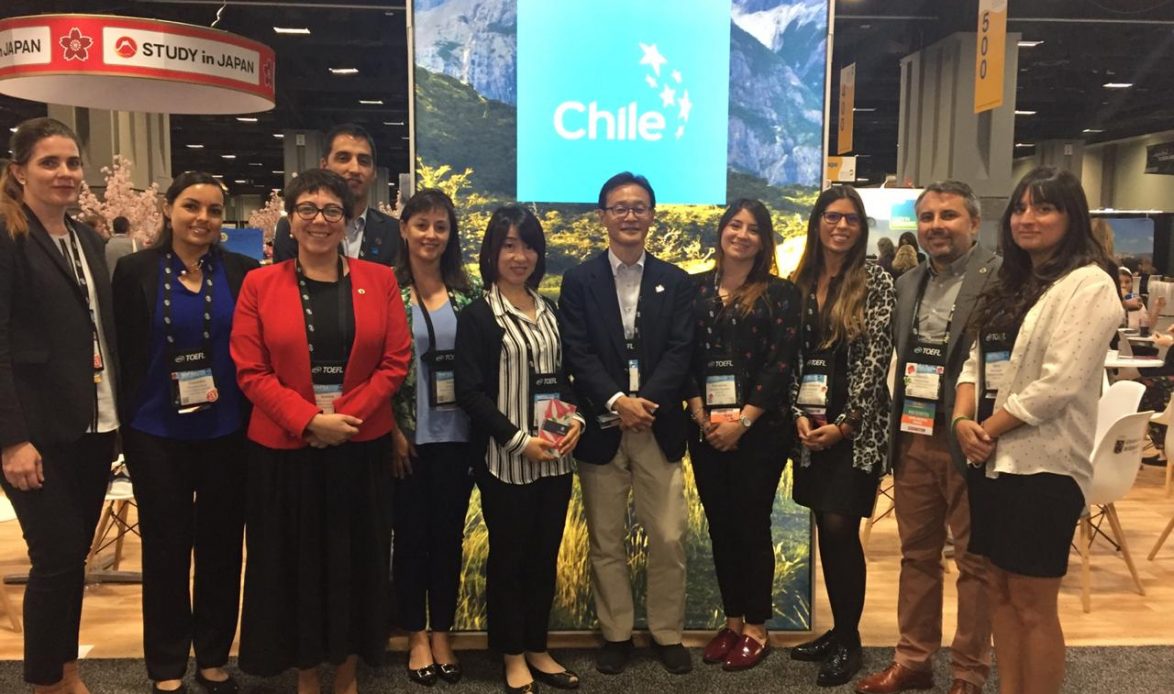
Chile joins the 20 member countries of the University Mobility in Asia and the Pacific (UMAP) network

During the NAFSA 2019 event, UMAP and Learn Chile representatives met with their peers from the University Mobility in Asia and the Pacific (UMAP) network. Starting from 2019, as a result of the process led by Learn Chile, Chile has joined this regional university network, which includes 570 educational institutions in 36 countries, of which 21 are member countries with 23 universities.
This year, the National Secretariat will be coordinated by Universidad Católica del Maule, led by the university’s Outreach Director Jorge Burgos. “Membership in this network is in line with the way in which higher education institutions are addressing the issue of international relations where, rather than signing bilateral conventions, efforts are being made to focus on establishing collaboration networks. This gives us more flexibility, facilitates administrative monitoring of the agreements, and enables more cross-disciplinary areas of collaboration to be found. Similarly, this type of network is often aligned with countries’ economic development priorities, and as such it promotes connection between the public, private and academic sectors”, said Burgos.
Benefits for Chile
Forming part of this network offers major benefits to Chile, including an increase in exchange students between member countries in the medium term. By signing the agreement with UMAP, the Chilean higher education institutions that form part of this network can access its extensive student mobility and institutional collaboration potential.
UMAP’s International Secretariat, based in Japan, welcomed Chile, and outlined the scholarship options available: “Taiwan and Japan offer scholarships for incoming and outgoing students, and Canada offers leadership exchange scholarships for young people interested in studying in Chile. There are many programs for students to choose from, all of which are taught in English. For institutions, on the other hand, UMAP will be an ideal opportunity to develop their strategic partnerships with our member countries and territories”.
UMAP was founded in 1991 as a voluntary association of government and non-government representatives from the higher education sector. The network’s general objective is for each country and territory in the Asia-Pacific region to achieve greater understanding of the cultural, economic and social systems of other countries in the region through increased cooperation between higher education institutions, and greater mobility of students and staff.
For the student body, “the network consists primarily of three types of mobility program. The first is multilateral programs with reciprocity conditions between institutions without additional costs for students in terms of tuition fees. The second is between two universities, with specific conditions to be defined. And the third consists of a line of short-term programs. The UMAP network opens at least two application processes per year for students to apply to this type of programs”, explained Burgos.
In the case of academic professionals, “the UMAP network includes a special partial financing line for research development. The conditions for this program are defined on an annual basis, and proposals are selected by an international committee appointed by the network’s board of directors”.
13 Learn Chile member institutions have already joined this association in 2019:
- DUOC UC
- INACAP
- Pontificia Universidad Católica de Valparaíso
- Universidad Autónoma
- Universidad Católica del Maule
- Universidad Católica de La Santísima Concepción
- Universidad de La Frontera
- Universidad de Los Andes
- Universidad de Valparaíso
- Universidad San Sebastián
- Universidad Técnica Federico Santa María
- Universidad Tecnológica Metropolitana
- Universidad Viña del Mar
Both NAFSA and EAIE (which will be attended by Learn Chile between September 24 and 27 this year) are key events at which UMAP coordination meetings will be held. “The topics to be addressed are related to specific coordination regarding scholarship application processes, reviewing the countries that are joining the network, and the strategic pillars that will be strengthened with greater emphasis”, concluded Burgos.
